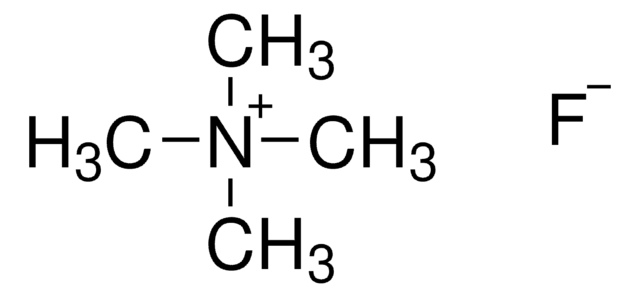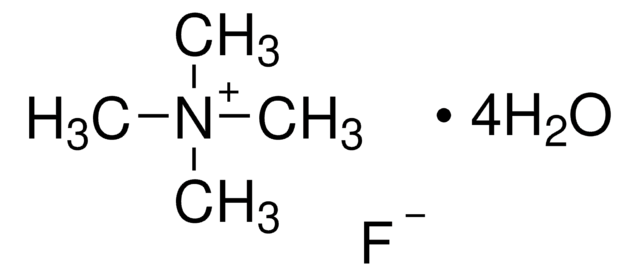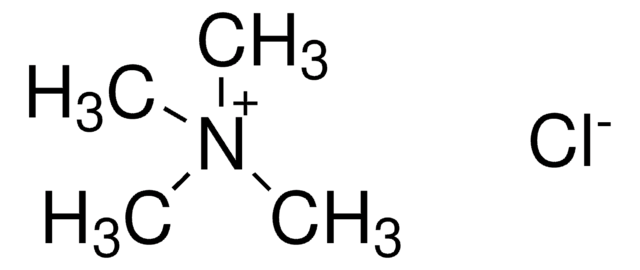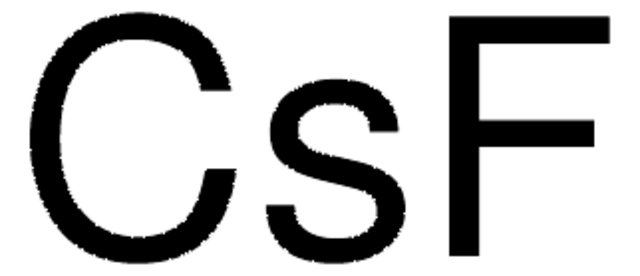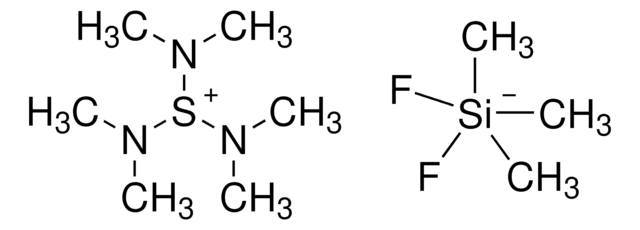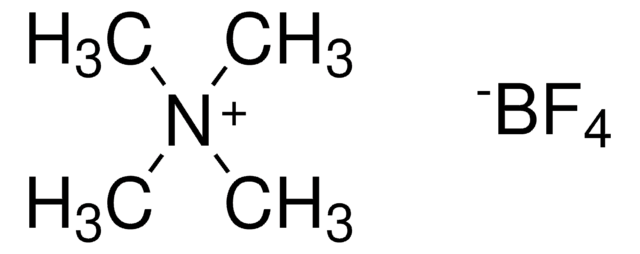235911
Tetraethylammonium fluoride hydrate
98%
Synonym(s):
Tetraethylammonium fluoride monohydrate
Sign Into View Organizational & Contract Pricing
All Photos(1)
About This Item
Linear Formula:
(C2H5)4NF·xH2O
CAS Number:
Molecular Weight:
149.25 (anhydrous basis)
MDL number:
UNSPSC Code:
12352116
PubChem Substance ID:
NACRES:
NA.22
Recommended Products
Quality Level
Assay
98%
form
solid
functional group
amine
SMILES string
O.[F-].CC[N+](CC)(CC)CC
InChI
1S/C8H20N.FH.H2O/c1-5-9(6-2,7-3)8-4;;/h5-8H2,1-4H3;1H;1H2/q+1;;/p-1
InChI key
YEKUWOWHPVKTCQ-UHFFFAOYSA-M
General description
Tetraethylammonium fluoride hydrate is a quaternary ammonium salt, is commonly used as a deprotection reagent in organic synthesis for the deprotection of silyl ether functional groups. It also acts as a mild and selective fluoride ion donor in fluorination reactions.
Application
Tetraethylammonium fluoride hydrate can be used as a homogeneous catalyst in the selective methanolytic depolymerization of poly(lactic acid) PLA.
Signal Word
Warning
Hazard Statements
Precautionary Statements
Hazard Classifications
Acute Tox. 4 Dermal - Acute Tox. 4 Inhalation - Acute Tox. 4 Oral - Eye Irrit. 2 - Skin Irrit. 2 - STOT SE 3
Target Organs
Respiratory system
Storage Class Code
11 - Combustible Solids
WGK
WGK 3
Flash Point(F)
Not applicable
Flash Point(C)
Not applicable
Personal Protective Equipment
dust mask type N95 (US), Eyeshields, Gloves
Choose from one of the most recent versions:
Already Own This Product?
Find documentation for the products that you have recently purchased in the Document Library.
Customers Also Viewed
Kun Jiao et al.
Dalton transactions (Cambridge, England : 2003), 46(7), 2270-2280 (2017-01-31)
Many synthesis parameters can influence zeolite crystallization, which include the molar ratio of reagents, water content, temperature, the selection of extraframework cations (organic or inorganic template) and so on. In this paper, two new materials, BUCT-1 with cuboid morphology and
Frank C Hendriks et al.
Chemistry (Weinheim an der Bergstrasse, Germany), 23(26), 6305-6314 (2017-02-22)
A micro-spectroscopic method has been developed to probe the accessibility of zeolite crystals using a series of fluorescent 4-(4-diethylaminostyryl)-1-methylpyridinium iodide (DAMPI) probes of increasing molecular size. Staining large zeolite crystals with MFI (ZSM-5) topology and subsequent mapping of the resulting
Our team of scientists has experience in all areas of research including Life Science, Material Science, Chemical Synthesis, Chromatography, Analytical and many others.
Contact Technical Service